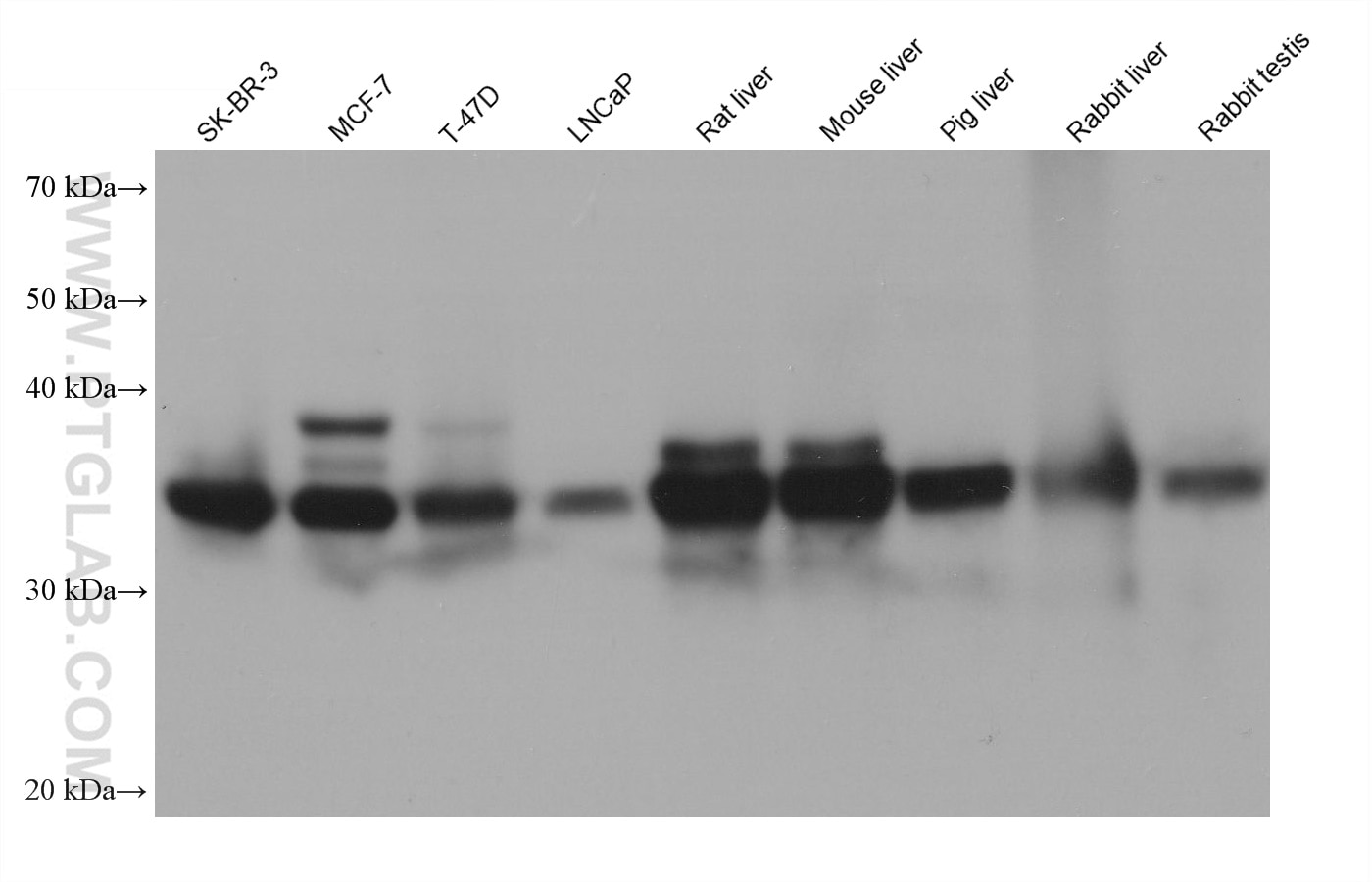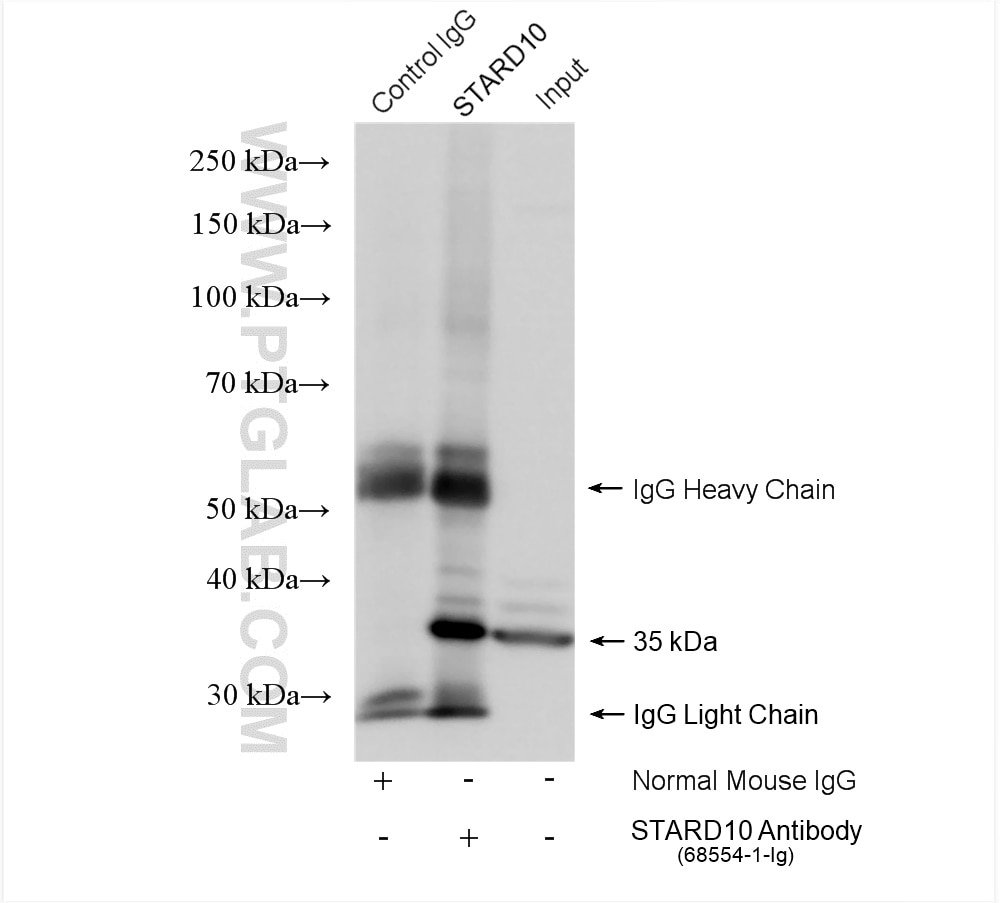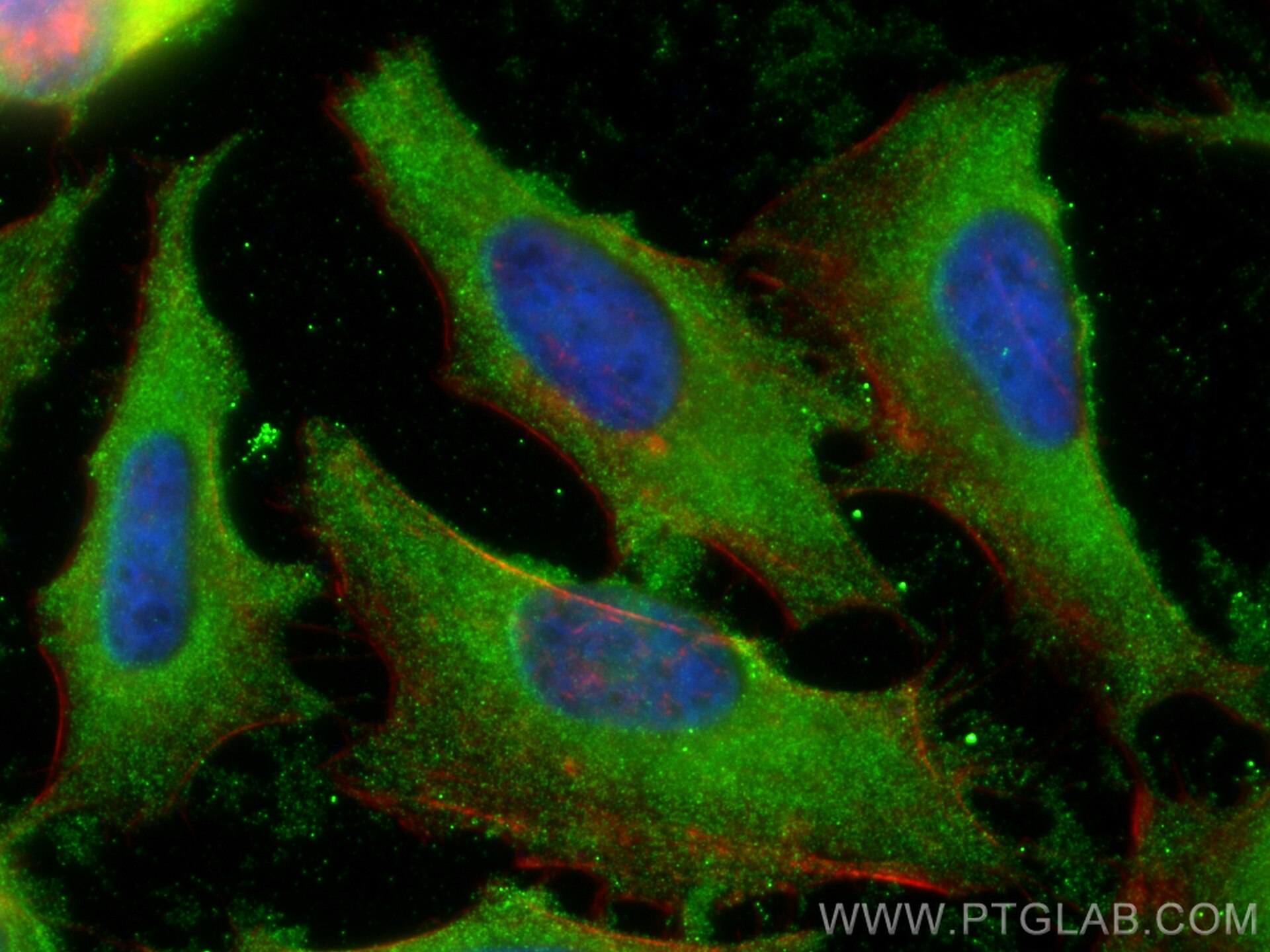Anticorps Monoclonal anti-STARD10
STARD10 Monoclonal Antibody for WB, IF/ICC, IP, ELISA
Hôte / Isotype
Mouse / IgG1
Réactivité testée
Humain, Lapin, porc, rat, souris
Applications
WB, IF/ICC, IP, ELISA
Conjugaison
Non conjugué
CloneNo.
1B9A1
N° de cat : 68554-1-Ig
Synonymes
Galerie de données de validation
Applications testées
| Résultats positifs en WB | SK-BR-3 cells, cellules LNCaP, cellules MCF-7, cellules T-47D, tissu hépatique de lapin, tissu hépatique de porc, tissu hépatique de rat, tissu hépatique de souris, tissu testiculaire de lapin |
| Résultats positifs en IP | cellules HepG2, |
| Résultats positifs en IF/ICC | cellules HeLa, |
Dilution recommandée
| Application | Dilution |
|---|---|
| Western Blot (WB) | WB : 1:5000-1:50000 |
| Immunoprécipitation (IP) | IP : 0.5-4.0 ug for 1.0-3.0 mg of total protein lysate |
| Immunofluorescence (IF)/ICC | IF/ICC : 1:400-1:1600 |
| It is recommended that this reagent should be titrated in each testing system to obtain optimal results. | |
| Sample-dependent, check data in validation data gallery | |
Informations sur le produit
68554-1-Ig cible STARD10 dans les applications de WB, IF/ICC, IP, ELISA et montre une réactivité avec des échantillons Humain, Lapin, porc, rat, souris
| Réactivité | Humain, Lapin, porc, rat, souris |
| Hôte / Isotype | Mouse / IgG1 |
| Clonalité | Monoclonal |
| Type | Anticorps |
| Immunogène | STARD10 Protéine recombinante Ag10932 |
| Nom complet | StAR-related lipid transfer (START) domain containing 10 |
| Masse moléculaire calculée | 291 aa, 33 kDa |
| Poids moléculaire observé | 35-40 kDa |
| Numéro d’acquisition GenBank | BC007919 |
| Symbole du gène | STARD10 |
| Identification du gène (NCBI) | 10809 |
| Conjugaison | Non conjugué |
| Forme | Liquide |
| Méthode de purification | Purification par protéine G |
| Tampon de stockage | PBS with 0.02% sodium azide and 50% glycerol |
| Conditions de stockage | Stocker à -20°C. Stable pendant un an après l'expédition. L'aliquotage n'est pas nécessaire pour le stockage à -20oC Les 20ul contiennent 0,1% de BSA. |
Informations générales
STARD10 (START domain-containing protein 10, also known as PCTP-like protein) is highly expressed in liver and responsible to transfer phosphatidylcholine. STARD10 was identified as a protein overexpressed in breast cancer that cooperates with the ErbB family of receptor tyrosine kinases in cellular transformation (PMID: 15911624). This antibody detected duplicate bands between 35-40 kDa (PMID: 15150109).
Protocole
| Product Specific Protocols | |
|---|---|
| WB protocol for STARD10 antibody 68554-1-Ig | Download protocol |
| IF protocol for STARD10 antibody 68554-1-Ig | Download protocol |
| IP protocol for STARD10 antibody 68554-1-Ig | Download protocol |
| Standard Protocols | |
|---|---|
| Click here to view our Standard Protocols |




